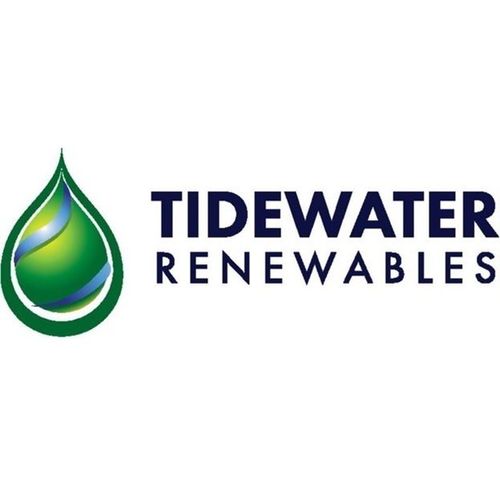Tidewater reports increased capacity utilization in Q1

May 14, 2025
BY Erin Voegele
Tidewater Renewables on May 8 announced that its 3,000-barrel-per-day renewable diesel plant in Prince George, British Columbia, operated at 75% capacity during the first quarter, up from 71% during the same period of last year, but down from 89% during the final quarter of 2024. The company attributed the decrease form the fourth quarter to softer Canadian renewable diesel demand and inclement weather that impacted rail logistics.
For the full year 2025, Tidewater expects production at the renewable diesel complex to average 2,200 to 2,400 barrels per day. That equates to 73% to 80% capacity utilization.
During a first quarter earnings call, Tidewater CEO Jeremy Baines discussed plant operations and currently regulatory issues, including the status of a countervailing (anti-subsidy) and anti-dumping duty complaint the company filed with the Canada Border Services Agency in late 2024.
Advertisement
Advertisement
Regarding plant operations, Baines noted the renewable diesel facility experienced a minor fire incident on April 1. According to Baines, the fire was swiftly extinguished and no injuries were reported. The damage was minimal and the company was able to make repairs with spare parts it had on hand. Operations at the plant resumed on April 14.
Baines noted a planned turnaround is scheduled for the third quarter. He estimated the turnaround will take approximately three weeks to complete.
Tidewater is currently Canada’s only domestic producer of renewable diesel. The company in December 2024 filed a compliant with the CBSA alleging that unfairly traded imports of renewable diesel from the U.S. were significantly undermining the Canadian industry. In its compliant, Tidewater claimed it has suffered material injury in the form of lost market share, lost sales, price undercutting, price depression, reduced profitability, and negative cash flow, return on investment and ability to raise capital as a result of subsidized U.S. renewable diesel dumped in the Canadian market.
Advertisement
Advertisement
The CBSA on March 6 announced it was initiating investigations as a result of Tidewater’s compliant. CBSA and the Canadian International Trade Tribunal are to each play a role in the investigations. The CITT was to begin a preliminary inquiry to determine whether the imports are harming Canadian producers, with a decision issued by May 5, 2025. Concurrently, the CBSA is investigating whether the imports are being sold in Canada at unfair prices and/or are being subsidized, and is expected to make preliminary decisions by June 4, 2025.
On May 5, the CITT announced its investigation did not find evidence that imports of U.S. renewable diesel are causing harm to Canada’s domestic renewable diesel industry.
During the earnings call, Baines expressed disappointment in the agency’s decision and said Tidewater remains steadfast in its commitment to ensure fair competition in Canada’s renewable diesel market. He stressed the company plans to aggressively pursue all available legal remedies, including the possibility of filing an amended or new complaint with the CBSA.
Tidewater reported C$57.67 million in revenue for the first quarter, down from $111.24 million during the same period of last year. Net income was $5.23 million, down from $7.72 million. Net income per basic share was 14 cents, compared to 22 cents, and adjusted EBITDA was $2.45 million, compared to $25.27million.
Related Stories
Saipem has been awarded an EPC contract by Enilive for the expansion of the company’s biorefinery in Porto Marghera, near Venice. The project will boost total nameplate capacity and enable the production of SAF.
Global digital shipbuilder Incat Crowther announced on June 11 the company has been commissioned by Los Angeles operator Catalina Express to design a new low-emission, renewable diesel-powered passenger ferry.
International Air Transport Association has announced the release of the Sustainable Aviation Fuel (SAF) Matchmaker platform, to facilitate SAF procurement between airlines and SAF producers by matching requests for SAF supply with offers.
Alfanar on June 20 officially opened its new office in London, further reaffirming its continued investment in the U.K. The company is developing Lighthouse Green Fuels, a U.K.-based SAF project that is expected to be complete in 2029.
ATR and French SAF aggregator ATOBA Energy on June 19 signed a memorandum of understanding (MOU) to explore ways to facilitate and accelerate sustainable aviation fuel (SAF) adoption for ATR operators.
Upcoming Events










